
Pronouns
Pronouns: Replace Nouns for Clarity and Simplicity
Pronouns replace nouns in sentences to make speech and writing clearer and less repetitive. Common pronouns include “he,” “she,” “it,” “they,” “we,” and “you.” Pronouns help refer to people, places, or things without repeating their names. They also show possession (e.g., “my,” “your”) or work as reflexive pronouns (e.g., “myself,” “yourself”).
Using pronouns correctly improves sentence flow and ensures clarity in both writing and speaking.

Other, The Other and Another - Learn when to use other, the other and another. Understand the differences, study ...
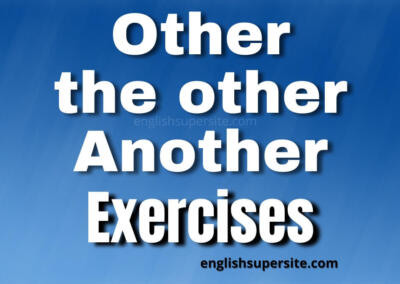
Exercises with other, the other and another! Other, the other and another - Quiz. Other or Another? Other or the ...

Learn here the basics of English Grammar. Parts of Speech are nouns, pronouns, adjectives, verbs, adverbs, ...
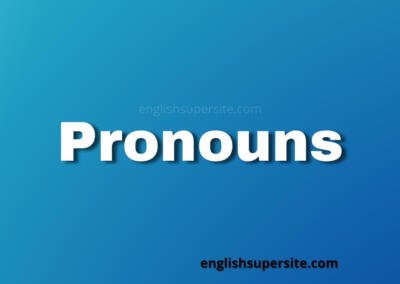
Pronouns, easy-to-learn table. I, me, my, mine, myself/you, your, yours, yourself .... Study this table and learn ...
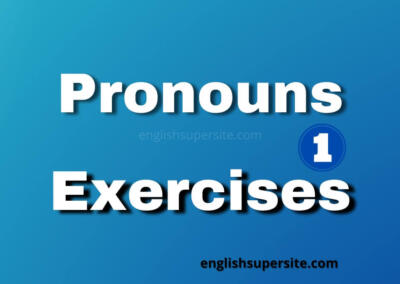
Pronouns - Exercises - Quiz. Test your English skills by completing all questions. Score in Real-Time!
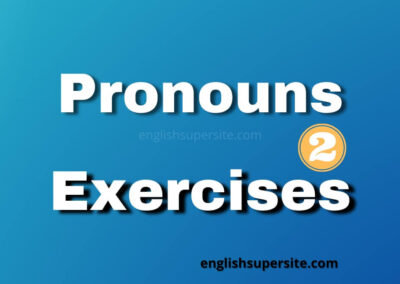
Pronouns - Exercises 2 - Quiz. Complete the sentences below with the correct pronoun. Score in Real-Time!
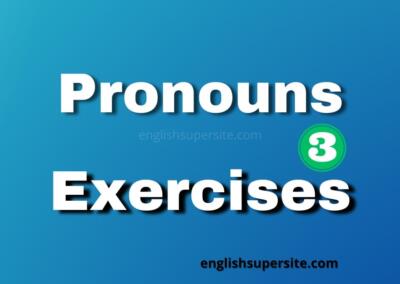
Pronouns - Exercises 3 - Quiz. Complete the sentences below with the correct pronoun. Score in Real Time!

Transition Words and Linking Words describe the relationship between two statements, phrases, sentences, or paragraphs.
Related Posts
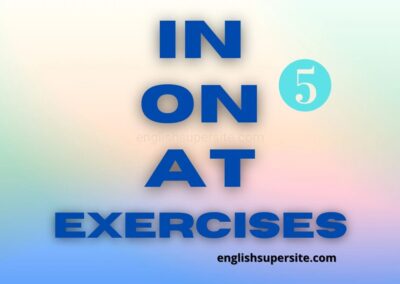
IN - ON - AT - Exercises 5 - Quiz - Practice using the prepositions IN, ON and AT. Complete the sentences below ...

The Past Continuous is a verb tense we use to express that an ongoing action was happening in the past. It gives a ...

Capital Letters in English! Improve your written English. Study and learn capital letters, upper-case letters, big ...


